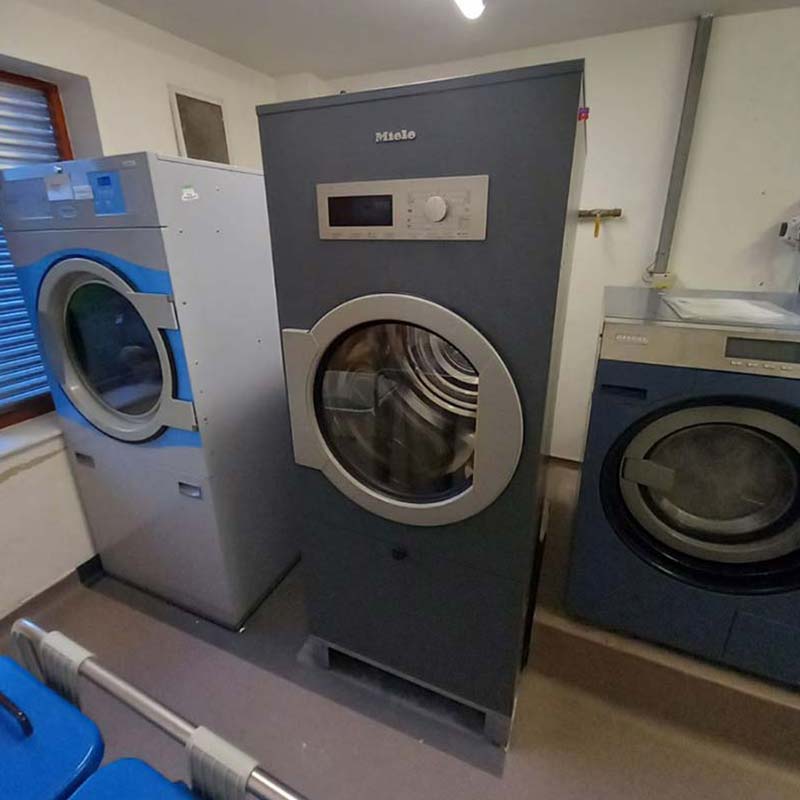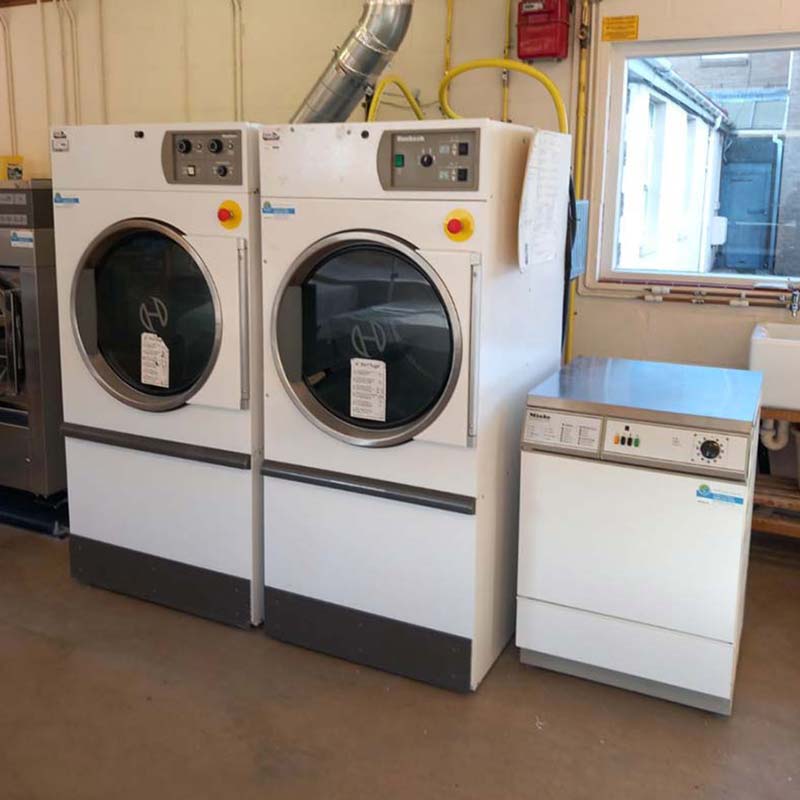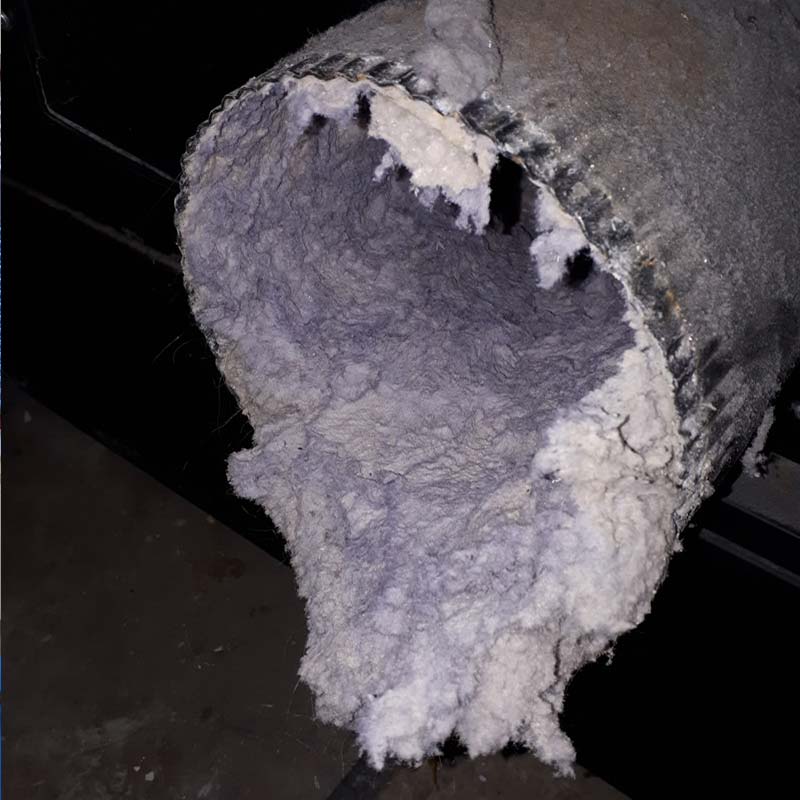For this Q&A with our Head Technical Engineer, Russell Churchill, we asked him to tell us more about gas safety with gas powered commercial laundry equipment, especially tumble dryers.
What are the legal and compliance requirements?
There are a number of laws, standards and regulations which are applicable when you have gas powered commercial laundry equipment, including:
- The Health and Safety at Work Act 1974
- BS 8446:2020 (Installation and maintenance of open-flued, non-domestic gas-fired laundry appliances)
- The Gas Safety (Installation and Use) Regulations of 1998
All installations and gas related work must comply with these requirements, and this includes being carried out by a Gas Safe registered company and engineer. The engineer must be specifically registered for non-domestic laundry appliances. The legal requirements also include an Annual Gas Safety Inspection.
What is an Annual Gas Safety Inspection?
This is a full inspection of the laundry installation (not just the machine itself) to ensure that the site complies with the Laws, Regulations and British Standards that apply.


What are some of the issues you see which can cause non-compliance?
We can come across a number of different issues, and some of the common ones which cause non-compliance and risk to people and property include:
- Insufficient ventilation – all appliances have a specific “make up air“ requirement, that the machine needs in order to replace the products of combustion that the machine blows into the outside atmosphere. This is specified in the installation documents, and not having enough make up air is a safety risk and is non-compliant.
- Overall poor maintenance – excess lint build up in an appliance or venting system is extremely hazardous. This can cause poor drying results, excess cycle times and decreased efficiency, and it risks possibly igniting and causing a fire.
- Locations of exhaust terminations – with gas powered dryers there needs to be a minimum distance from the outside exhaust to any airway into the building. This is to prevent any gases re-entering the building.
- Flexible vent pipes – vent pipes should be of smooth bore construction, discharge to the atmosphere and be capable of withstanding the temperatures from a dryer which is up to 80 °C, with only a short length of flexible pipe allowed. This flexible pipe cannot be used to change direction.
- Not using an approved Gas Safe engineer – all works, including the Annual Gas Safety Inspection, must be performed by a Gas Safe registered engineer who is specifically approved for non-domestic laundry appliances.
How can JTM Service help?
JTM Service Ltd are Gas Safe registered, and all our gas engineers hold the relevant “Gas Safe” qualifications for installing, servicing, maintaining and repairing gas powered laundry equipment. Our in-house teams of installation and service engineers support you to keep you safe and compliant.
Thank you to Russell for the Q&A, and if you want to discuss please contact us on 0113 2572221 or email service@jtmservice.co.uk. And if you want to know more about Russell, including more about his role at JTM Service, please go to https://jtmservice.co.uk/meet-the-team-russell-churchill/


